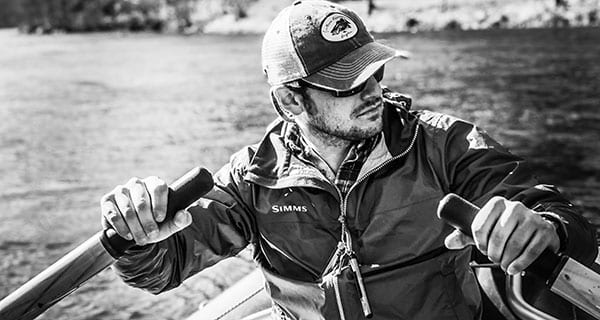To anyone who fishes, working as a guide and being considered a professional, is the ultimate dream job to have. I’m lucky enough to have an opportunity to call my home waters my office, and have an occupation that is the envy of other people. With that privilege has come a tremendous amount of what we’ll call “behind the scenes” work that most of my clients, or the average person, will never see nor understand. In addition to that, there comes the years of experience fishing in almost every variety of water imaginable, which is a bare minimum requirement to even consider guiding an option for a career. I have given and sacrificed the majority of my life to fishing and becoming a professional guide, and it’s a responsibility that not only requires you to wear many hats but also demands your complete devotion to becoming a steward of the waters you call home. I’ll try to shed some insight on what it actually means to be a professional guide.
Working hours can vary drastically, with most of my days beginning at around 4:30 in the morning. At this point, I’m normally half awake trying to put my waders on while simultaneously making coffee. The night before was spent gathering waders/ boots checking, and double checking, sizes while packing extras, re-rigging rods/ respooling reels, checking the weather/ water-levels, filling the truck up with gas, packing up the drift boat, coming up with Plan A/ Plan B/ Plan C in case something becomes compromised, and maybe squeezing a quick bite to eat in-between. That’s then followed by, at a minimum, a thirty to forty minute commute to stop at the earliest opening grocery store to pick up my clients’ lunch, snacks, and by this point, more coffee. All of this is generally done before 6 o’clock rolls around.
Then there is the gear. As a guide that offers both fly fishing and spin fishing trips: I have spent a significant amount of money on tackle. It’s not fair to clients to just settle for cheap equipment either, for a myriad of reasons. That goes beyond just rods and reels as well. You have to budget in other forms of equipment as well, such as quality waders/ boots, a drift-boat/ raft, with what might arguably be the most important piece of gear being your vehicle. Your personal vehicle is often the one you’re guiding out of, so you not only have to be okay with putting on a high amount of mileage in a short time, but also be willing to keep it clean and in good running order. There have been many nights I have spent cleaning the inside of my truck to keep it in good condition for my clients.
Time is also a major factor in all of this. Most folks don’t often see or understand how much time guiding can sometimes take away from your personal life. There have been many times I can recall rushing to family events after trips and taking the waders off in parking lots. Most of your free time fishing will be spent scouting water, and if you’re not doing that then you’re generally reorganizing or spending time doing general maintenance on gear. It’s a job that doesn’t have a clock in or clock out time, but rather you do what you have to do in order to make time for everything else, while also putting in the hours necessary to make future trips a success.
The ultimate limiting factor to being a professional guide compared to being a regular angler is by far, experience. Guiding is not a career that can simply be jumped into because you think it’s just a “cool” job. It has taken me a lot of fishless days and untold amounts of time and money sacrificed in order to figure different rivers and streams out to the point where I can guide on them in a manner that is fair for my clients. You have to remember that people pay you for your experience and knowledge, and to not have that while taking peoples’ money isn’t fair to the folks who genuinely want to learn how to fish.
With all of this being said, guiding is still the best job in the world. The fatigue that I often feel at the end of the day is worth it when I get to share with my clients in some incredible experiences that remind me of the same feelings of elation that I had growing up fishing here in Western North Carolina. To me, there is nothing more rewarding than to say that my expertise helped to give someone memories that will last them a lifetime.
Ethan Hollifield is an Environmental/Physical Science Teacher and is also a guide for Southern Appalachian Anglers.
